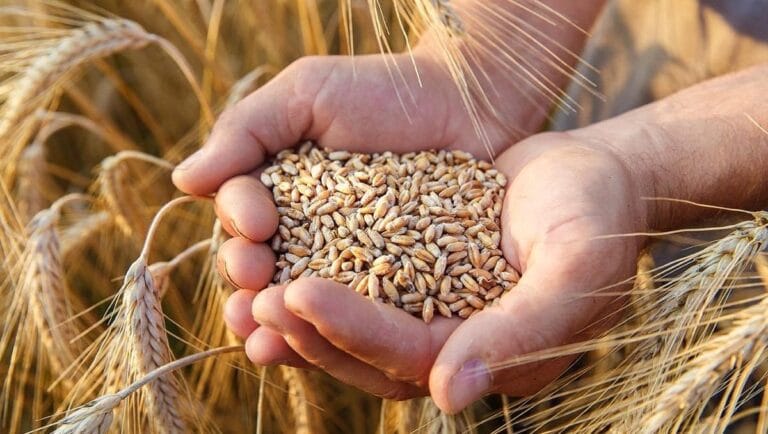As geopolitical, climatic, and economic tensions reshape the map of global food security, a joint report from the OECD and FAO urges Southern countries, including Morocco, to urgently strengthen their agricultural sovereignty. Titled Agricultural Outlook 2025-2034, this strategic report highlights the increasing fragility of importing countries in the face of a decade of significant uncertainties.
A risky structural dependence
Morocco remains largely dependent on external markets to meet its basic needs for cereals, vegetable oils, and animal proteins. This vulnerability exposes the country to the volatility of global prices, exacerbated by climatic hazards, energy tensions, and geopolitical conflicts. While a long-term average decline in real prices is anticipated, their short-term instability complicates agricultural planning, particularly for small Moroccan producers, who are often poorly mechanized and undercapitalized.
Two key levers: productivity and sustainable technologies
The report identifies two priority areas to reverse the trend: improving agricultural productivity (+15% by 2034) and accelerating the dissemination of low-carbon technologies. In an ambitious scenario, it would be possible to reduce global agricultural sector emissions by 7% while eliminating undernourishment.
For Morocco, this implies massive investments in:
- Efficient irrigation, particularly drip irrigation and smart systems,
- Agronomic research, tailored to local constraints (drought, salinity, poor soils),
- Sustainable livestock farming, with low emissions and better integration into markets,
- Sustainable farming practices, including crop rotations, rational use of inputs, and cover crops.
Water, the vital issue
In a country structurally exposed to water stress — with less than 600 m³ of freshwater per capita per year — yield gains must necessarily come from optimizing water use. This involves:
- Widespread adoption of localized irrigation,
- Diversification towards less water-intensive crops (olive trees, cacti, legumes),
- Valuing high-value exportable crops (berries, citrus fruits, medicinal plants).
International trade: a lever to activate
By 2034, more than 20% of calories consumed globally are expected to come from cross-border trade. Morocco, with its geostrategic position and recognized expertise in exporting fruits and vegetables, could further benefit from this dynamic. To do so, it must:
- Strengthen its phytosanitary standards and traceability,
- Invest in the cold chain and agri-food logistics,
- Secure and diversify its trade agreements, particularly with Africa, Europe, and the Middle East.
The report also advocates for a stable multilateral trade framework based on clear rules, to combat protectionist temptations that weaken trade and exacerbate food imbalances.
Proteins and nutrition: a social priority
Another critical aspect is the quality of nutrition. While average animal protein consumption in low-income countries is expected to peak at 143 kcal/day by 2034 (compared to the 300 kcal recommended by the FAO), Morocco must rethink its food supply. This involves:
- Revaluing local sectors: poultry, eggs, fish,
- Targeted public policies to ensure equitable access to healthy food,
- Supporting local producers through tax incentives and short supply chains.
A sovereignty to rebuild
In summary, the OECD-FAO report reminds us that food sovereignty is not limited to quantitative self-sufficiency but is about the ability to ensure a stable, sustainable, and nutritious supply. For Morocco, this implies a clear direction towards regenerative agriculture, integrated into global value chains, and capable of ensuring food security for all its populations.
In a context of strong external pressures, the stakes are as strategic as they are economic: it is about transforming a vulnerable agriculture into a pillar of resilience, social equity, and national competitiveness.


